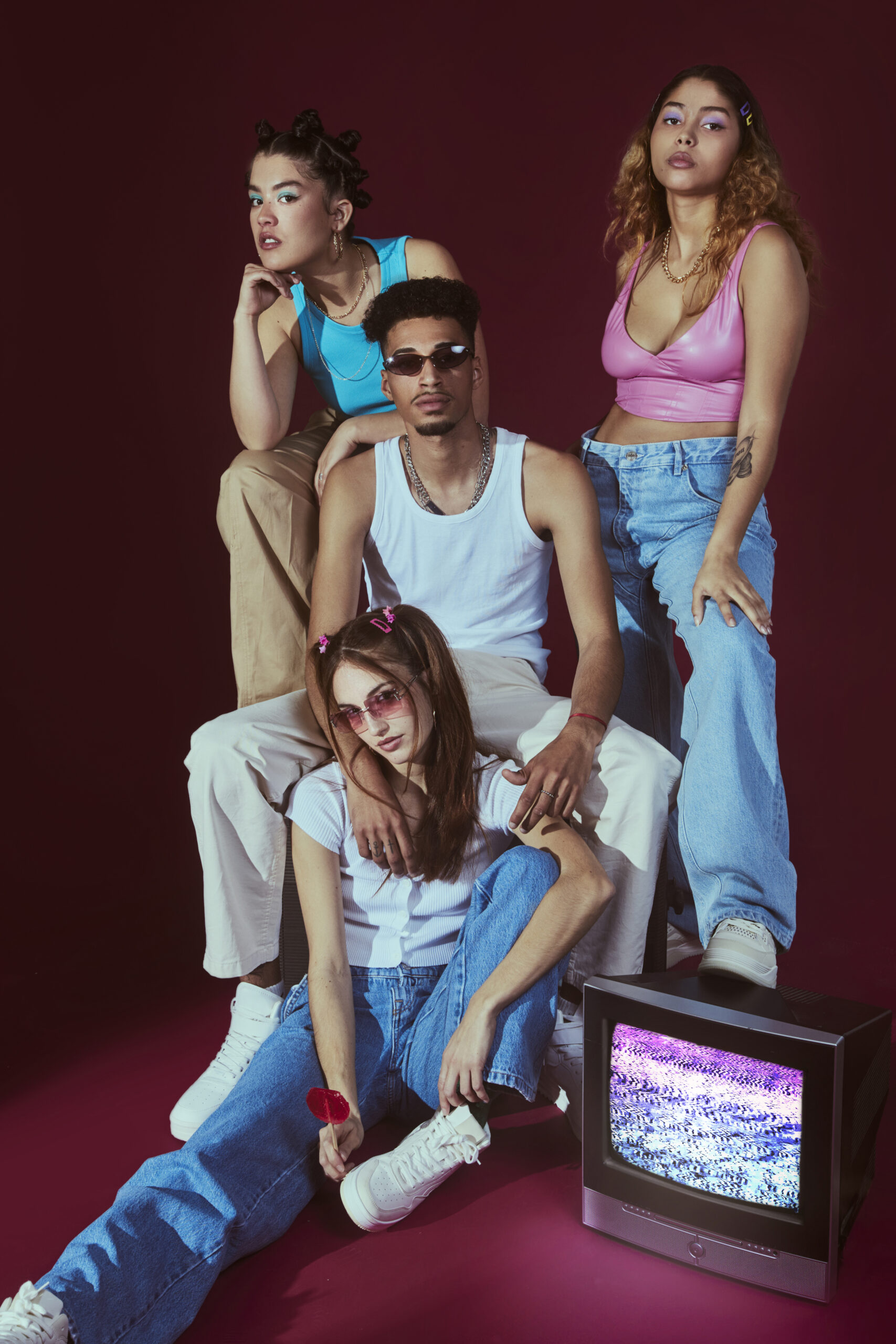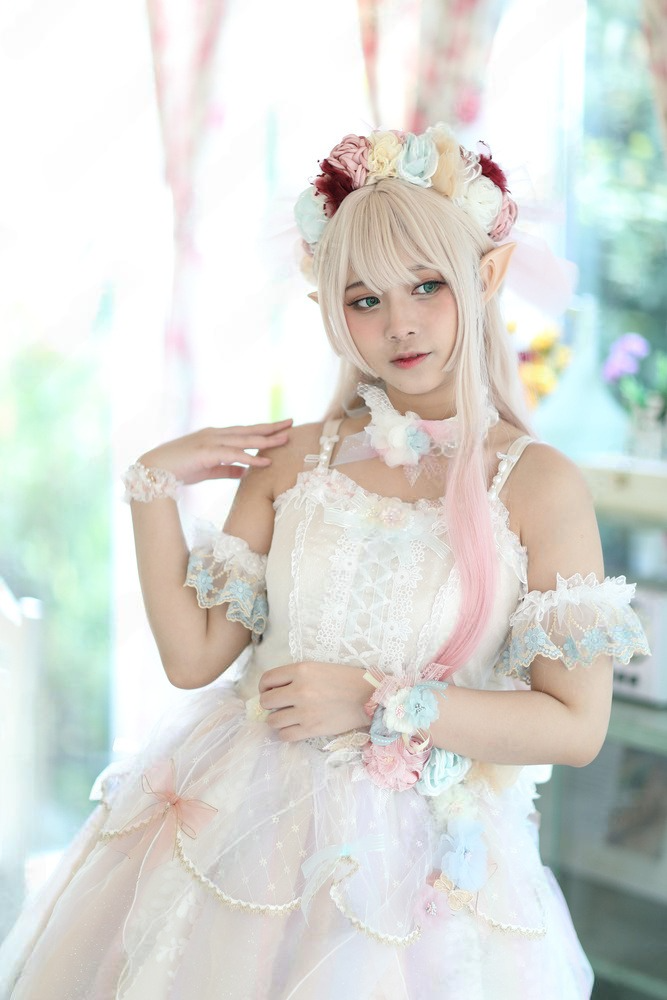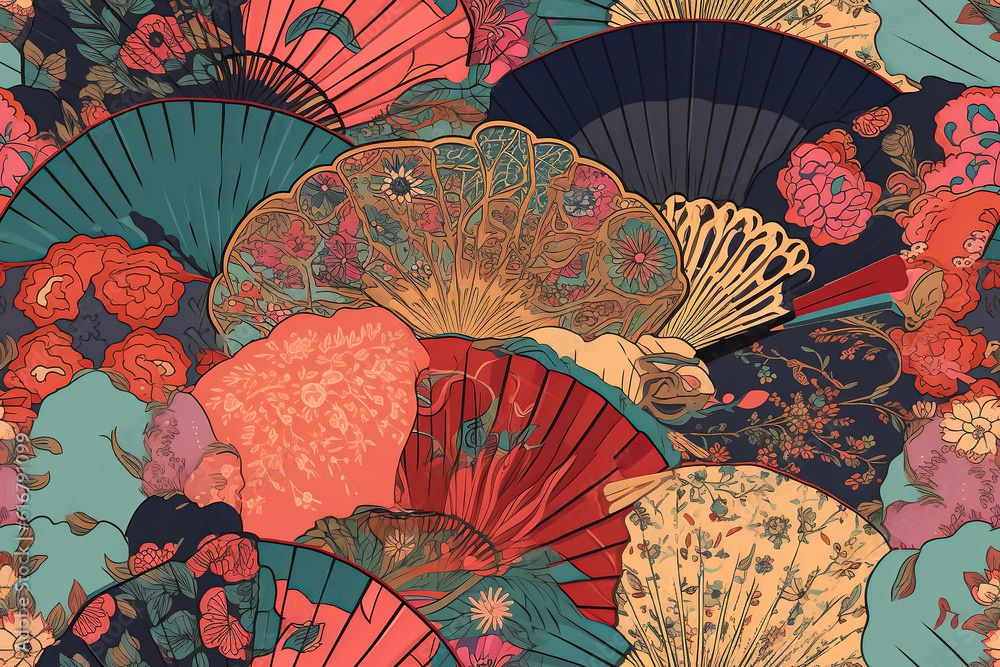Welcome to the vibrant world of Y2K fashion style, where nostalgia meets modern flair in a harmonious fusion of styles from the early 2000s. As we journey through the trends that defined the turn of the millennium, we’ll explore how Y2K fashion has made a resurgence in recent years, captivating a new generation with its bold colors, futuristic elements, and eclectic mix of influences.
Table of Contents
Introduction to Y2K Fashion Style
What is Y2K Fashion?
Y2K fashion, short for “Year 2000 fashion,” refers to the style trends that emerged during the late 1990s and early 2000s. Characterized by its experimental and unconventional approach to clothing, Y2K fashion reflects the optimism and technological advancements of the era. From shimmering metallics to futuristic silhouettes, it encapsulates the spirit of a time defined by rapid change and innovation.
The Origins of Y2K Fashion Style: A Journey into Turn-of-the-Millennium Style
Delving into the origins of Y2K fashion style takes us on a captivating journey back to the turn of the millennium, where cultural shifts, technological advancements, and a sense of optimism converged to shape the style landscape of the late 1990s and early 2000s.
The Cultural Landscape of the Late 1990s
1. Technological Revolution
As the world approached the year 2000, there was a palpable sense of anticipation surrounding the dawn of a new millennium. The rapid advancement of technology, particularly the rise of the internet and digital media, influenced not only how people communicated but also how they expressed themselves through fashion.
2. Pop Culture and Media Influence
The late 1990s witnessed a proliferation of iconic pop culture phenomena, from hit TV shows like “Friends” and “Sex and the City” to blockbuster films such as “Clueless” and “The Matrix.” These cultural touchstones not only captivated audiences but also significantly influenced fashion trends, inspiring novel looks and aesthetics that would come to define the Y2K era.
Unlocking the Time Capsule: Exploring the Key Elements of Y2K Fashion Style
Y2K fashion style was a kaleidoscopic tapestry of innovation, nostalgia, and cultural zeitgeist. From futuristic fabrics to sustainable style, the key elements of this era continue to inspire and influence contemporary fashion trends. As we delve into the archives of this iconic period, we uncover the key elements that defined this trendsetting epoch.
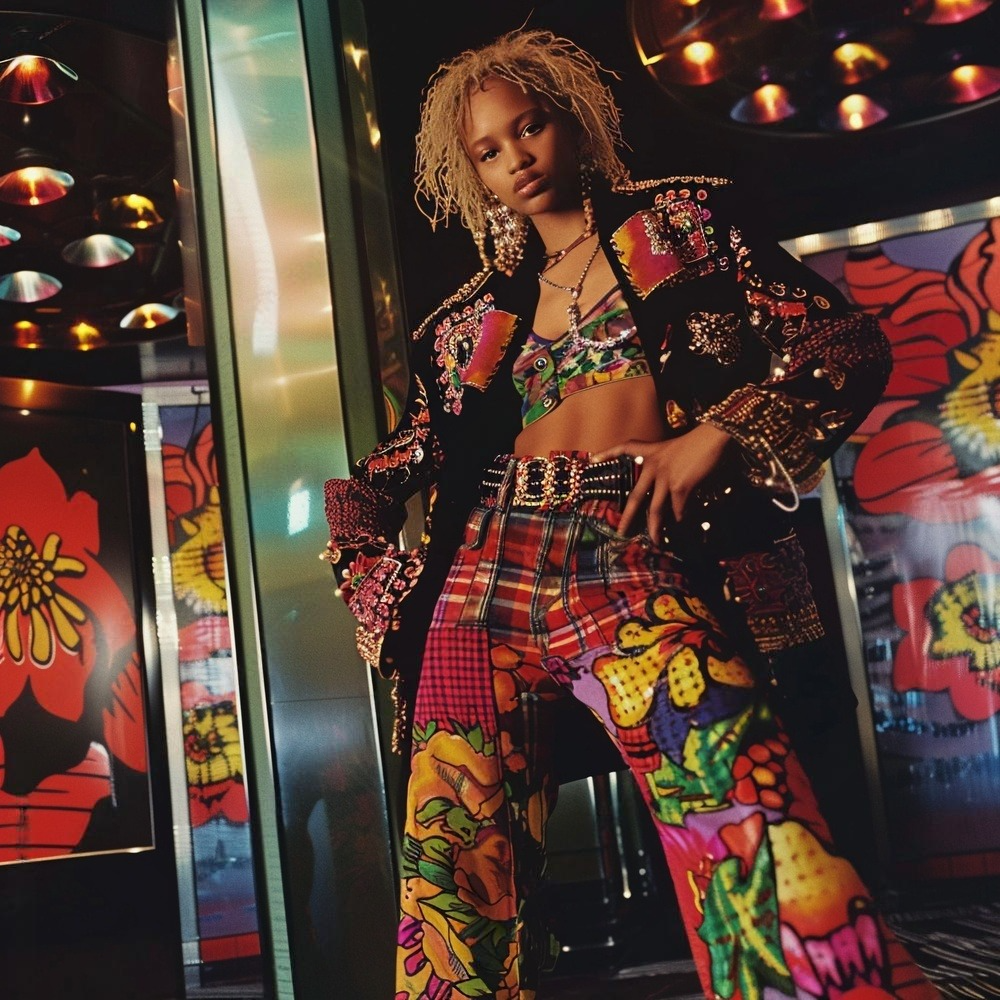
1. Futuristic Fabrics
Y2K fashion style was synonymous with cutting-edge fabrics that embodied a futuristic aesthetic. From sleek metallics to iridescent sheens, clothing embraced a space-age allure. Shimmering synthetics and patent leather-dominated runways reflect a fascination with all things modern and innovative.
2. Cyber Chic
With the rise of technology permeating every aspect of daily life, fashion took cues from the digital realm. Cyber chic attire featured bold neon hues, futuristic prints, and edgy silhouettes inspired by virtual landscapes. Think matrix-inspired trench coats paired with skin-tight latex and oversized goggles for a look that was straight out of a sci-fi fantasy.
3. Logo Mania
Branding became a central motif in Y2K fashion, with logos emblazoned across clothing and accessories. Iconic designer labels were celebrated, and flaunting logo-heavy ensembles became a symbol of status and luxury. Whether it was the unmistakable Gucci double G or the Dior monogram, conspicuous branding was the ultimate fashion statement.
4. Pop Culture References
The turn of the millennium was a time of cultural saturation, with pop culture influencing every aspect of society, including fashion. Y2K fashion style drew inspiration from celebrities, music, and movies, with trends mirroring the zeitgeist of the era. From Britney Spears’ schoolgirl uniform to The Matrix’s sleek leather ensembles, fashion became a form of homage to beloved icons and phenomena.
5. Mix and Match Madness
Forget about playing it safe; – the Y2K fashion style encouraged fearless experimentation and boundary-pushing combinations. Clashing patterns, unexpected color combinations, and eclectic pairings were all fair game. It was a time when more was more, and fashionistas embraced the mantra of individuality and self-expression.
6. DIY Couture
Amidst the commercialism of mainstream fashion, DIY couture emerged as a rebellious antidote. Customization, upcycling, and handcrafted embellishments allowed individuals to put a personal spin on their wardrobe. From bedazzled denim jackets to reconstructed vintage tees, DIY fashion celebrates creativity and authenticity.
7. Streetwear Renaissance
Y2K fashion style saw the rise of streetwear as a dominant force in the industry. Baggy jeans, oversized hoodies, and sneakers became staples of urban style, transcending subculture to infiltrate mainstream fashion. Brands like Supreme, BAPE, and Stüssy pioneered the streetwear movement, transforming casual attire into high fashion.
8. Nostalgic Nods
As the new millennium dawned, nostalgia for past decades permeated fashion trends. Retro revivals paid homage to the styles of the ’60s, ’70s, and ’80s, reimagined through a Y2K lens. From disco-inspired sequins to hippie-chic bohemian prints, the nostalgia-fueled aesthetic added depth and dimension to contemporary fashion.
9. Body Positivity
Y2K fashion style celebrated diversity and embraced a more inclusive definition of beauty. Body-positive campaigns, plus-size models, and inclusive sizing became increasingly prevalent, challenging traditional beauty standards. It was a pivotal moment in fashion history, marking a shift towards greater representation and empowerment.
10. Sustainable Style
While consumerism was rampant during the Y2K era, there was also a growing awareness of environmental issues. Sustainable fashion movements emerged, promoting ethical production, eco-friendly materials, and slow fashion practices. As the fashion industry grappled with its ecological footprint, sustainable style became a rallying cry for conscious consumers.
Influential Brands and Designers of Y2K Fashion Style
The early 2000s witnessed a remarkable shift in fashion, characterized by bold colors, futuristic designs, and unconventional silhouettes. Today, the Y2K aesthetic continues to inspire designers and influencers alike, making it a prominent trend in the fashion industry.
1. Juicy Couture
Juicy Couture epitomized the glamour and luxury of Y2K fashion style with its iconic velour tracksuits, bedazzled designs, and vibrant color palettes. Founded by Pamela Skaist-Levy and Gela Nash-Taylor in 1997, Juicy Couture quickly became synonymous with celebrity culture and the early 2000s aesthetic. With its playful yet luxurious approach to fashion, Juicy Couture continues to influence streetwear and athleisure trends today.
2. Von Dutch
Von Dutch revolutionized the fashion industry with its distinctive trucker hats, graphic tees, and motorcycle-inspired apparel. Founded by Kenny Howard in the late 20th century, Von Dutch became a symbol of counterculture fashion during the Y2K era. Its rebellious spirit and edgy designs captured the imagination of fashion enthusiasts worldwide, cementing its legacy as a pioneering brand in streetwear.
3. Baby Phat
Baby Phat, founded by Kimora Lee Simmons in 1999, embodied the glamorous and bold aesthetic of the Y2K fashion style. Known for its extravagant runway shows and iconic cat logo, Baby Phat redefined urban fashion with its provocative designs and body-positive messaging. The brand’s fusion of streetwear and high fashion continues to inspire designers and influencers, making it a timeless icon of the early 2000s era.
4. Ed Hardy
Ed Hardy brought tattoo culture to the forefront of fashion with its vibrant prints, intricate designs, and rebellious attitude. Founded by Christian Audigier in collaboration with tattoo artist Don Ed Hardy, the brand became synonymous with celebrity endorsements and pop culture iconography. Despite facing controversies and shifting trends, Ed Hardy remains a symbol of individuality and self-expression in the Y2K fashion style scene.
5. Marc Jacobs
Marc Jacobs is renowned for his eclectic and boundary-pushing approach to fashion, which has left an indelible mark on the Y2K aesthetic. From his grunge-inspired collections to his bold use of colors and textures, Jacobs has consistently pushed the boundaries of conventional design. With his eponymous label and tenure at Louis Vuitton, Jacobs continues to shape the fashion landscape with his innovative and trend-setting creations.
6. Versace
Versace epitomizes the opulence and extravagance of the Y2K fashion style with its bold prints, sensual silhouettes, and luxurious fabrics. Founded by Gianni Versace in 1978, the Italian fashion house became synonymous with glamour and excess during the 1990s and early 2000s. Today, under the creative direction of Donatella Versace, the brand continues to reinvent itself while staying true to its iconic aesthetic, solidifying its status as a powerhouse in the world of high fashion.
7. Dior
Dior has been a driving force behind the Y2K fashion style revival with its avant-garde designs and timeless elegance. From John Galliano’s theatrical runway shows to Raf Simons’ minimalist approach, Dior has continuously evolved while maintaining its signature sophistication. With its iconic handbags, iconic fragrances, and iconic haute couture creations, Dior remains at the forefront of luxury fashion, inspiring generations of designers and fashion enthusiasts alike.
8. Chanel
Chanel has remained a symbol of timeless elegance and sophistication in the world of fashion, influencing the Y2K aesthetic with its iconic designs and revolutionary approach to style. From the legendary Chanel suit to the iconic quilted handbag, the French fashion house has defined luxury and refinement for over a century. With creative director Virginie Viard at the helm, Chanel continues to captivate audiences with its innovative designs and timeless allure.
9. Alexander McQueen
Alexander McQueen was a visionary designer whose avant-garde creations challenged fashion norms and pushed the boundaries of creativity. From his theatrical runway shows to his meticulously crafted garments, McQueen’s impact on the Y2K fashion scene is undeniable. Despite his tragic passing in 2010, McQueen’s legacy continues to inspire designers and fashion enthusiasts worldwide, cementing his status as a true icon of the industry.
10. Jeremy Scott
Jeremy Scott is known for his bold and eccentric designs that blur the lines between fashion and pop culture. As the creative director of Moschino since 2013, Scott has infused the brand with his signature whimsical aesthetic, drawing inspiration from cartoons, fast food, and consumer culture. His playful yet provocative approach to design has earned him a cult following among celebrities and fashionistas, solidifying his place as one of the most influential designers of the Y2K era.
Celebrity Icons of Y2K Fashion
The early 2000s ushered in an era of fashion experimentation and innovation, with celebrities emerging as key influencers who shaped the trends of the time. From their glamorous red-carpet looks to their casual street style, these iconic figures became inextricably linked with Y2K fashion, captivating and inspiring millions of fans worldwide. In this article, we’ll examine some of the most influential celebrity icons who left an indelible imprint on the cultural landscape through their Y2K fashion choices.
1. Britney Spears
Britney Spears emerged as a style icon of the Y2K era, captivating audiences with her daring fashion choices and signature blend of sex appeal and innocence. From her iconic schoolgirl ensemble in the “…Baby One More Time” music video to her bedazzled stage costumes, Spears epitomized the playful and provocative aesthetic of the early 2000s. Her influence extended beyond the music industry, inspiring countless fans to emulate her iconic looks.
2. Paris Hilton
Paris Hilton embodied the ostentatious and lavish essence of the Y2K era, captivating audiences with her daring fashion choices and commanding presence. From her signature Juicy Couture tracksuits to her affinity for designer accessories and bold eyewear, Hilton’s style captured the spirit of excess and indulgence that defined the time. Leveraging her status as a socialite, entrepreneur, and television personality, she wielded immense influence over the world of fashion and popular culture, solidifying her place as an enduring icon of the era.
3. Beyoncé
Beyoncé rose to prominence in the early 2000s as the lead singer of Destiny’s Child before establishing herself as a solo artist and fashion icon. With her powerful vocals and commanding stage presence, Beyoncé captivated audiences both on and off the stage with her impeccable sense of style. From glamorous red carpet gowns to edgy streetwear looks, she effortlessly transitioned between different fashion personas, solidifying her status as one of the most influential figures in Y2K fashion.
4. Christina Aguilera
Christina Aguilera embraced a bold and daring approach to fashion during the Y2K era, pushing the boundaries of style with her provocative outfits and fearless attitude. From her leather chaps and crop tops to her dramatic hair and makeup, Aguilera’s aesthetic was all about self-expression and empowerment. As a pop icon and trendsetter, she inspired a generation of fans to embrace their individuality and embrace the spirit of the early 2000s.
5. Gwen Stefani
Gwen Stefani captured the essence of Y2K fashion with her eclectic and fearless style, blending elements of punk, ska, and streetwear into her iconic looks. As the lead singer of No Doubt and a solo artist, Stefani brought a unique blend of femininity and rebellion to the fashion scene, inspiring fans with her bold fashion choices and fearless attitude. From her signature bindis and crop tops to her iconic platinum blonde hair, she remains a style icon of the era.
6. Justin Timberlake
Justin Timberlake transcended his boy band roots to become a fashion icon of the Y2K era, showcasing his impeccable sense of style and versatility both on and off the stage. From his sleek suits and fedoras to his casual streetwear looks, Timberlake effortlessly transitioned between different fashion personas, influencing trends and inspiring fans around the world. With his undeniable charisma and charm, he solidified his status as a true style icon of the early 2000s.
7. Jennifer Lopez
Jennifer Lopez dazzled audiences with her glamorous and sophisticated style during the Y2K era, showcasing her versatility and elegance both on and off the red carpet. From her iconic green Versace dress at the 2000 Grammy Awards to her sleek and sexy streetwear looks, Lopez epitomized the epitome of timeless elegance and effortless chic. As a singer, actress, and fashion icon, she continues to inspire fans with her impeccable sense of style and undeniable presence.
8. Mary-Kate and Ashley Olsen
Mary-Kate and Ashley Olsen rose to fame as child stars before transitioning into fashion moguls and style icons of the Y2K era. With their bohemian-inspired fashion label, The Row, the Olsen twins redefined luxury and sophistication, offering a minimalist yet luxurious take on contemporary fashion. From their oversized sunglasses and flowing silhouettes to their impeccable layering and attention to detail, they continue to influence the fashion industry with their understated elegance and timeless aesthetic.
9. Lindsay Lohan
Lindsay Lohan captivated audiences with her youthful charm and undeniable talent, becoming a fashion icon of the Y2K era. From her breakout role in “Mean Girls” to her glamorous red carpet appearances, Lohan showcased her versatility and style, inspiring fans with her effortlessly chic and laid-back glamour. Despite facing personal struggles in recent years, she remains a symbol of the early 2000s era and continues to influence fashion trends with her iconic looks.
10. Nicole Richie
Nicole Richie emerged as a fashion icon of the Y2K era, captivating audiences with her bohemian-inspired style and carefree attitude. From her role in “The Simple Life” to her fashion line, House of Harlow 1960, Richie showcased her unique sense of style and creativity, inspiring fans with her eclectic fashion choices and effortless cool. With her love for vintage fashion and eye for design, she continues to influence the fashion industry with her timeless aesthetic and effortless charm.
Sustainability and Y2K Fashion Style: A Synergistic Approach to Ethical Style
In recent years, the fashion industry has witnessed a paradigm shift towards sustainability, driven by increasing awareness of environmental and social issues. Concurrently, there has been a resurgence of the Y2K fashion style, characterized by its nostalgic appeal and futuristic aesthetics. This intersection of sustainability and Y2K fashion style presents a unique opportunity to redefine ethical style and promote conscious consumption practices.
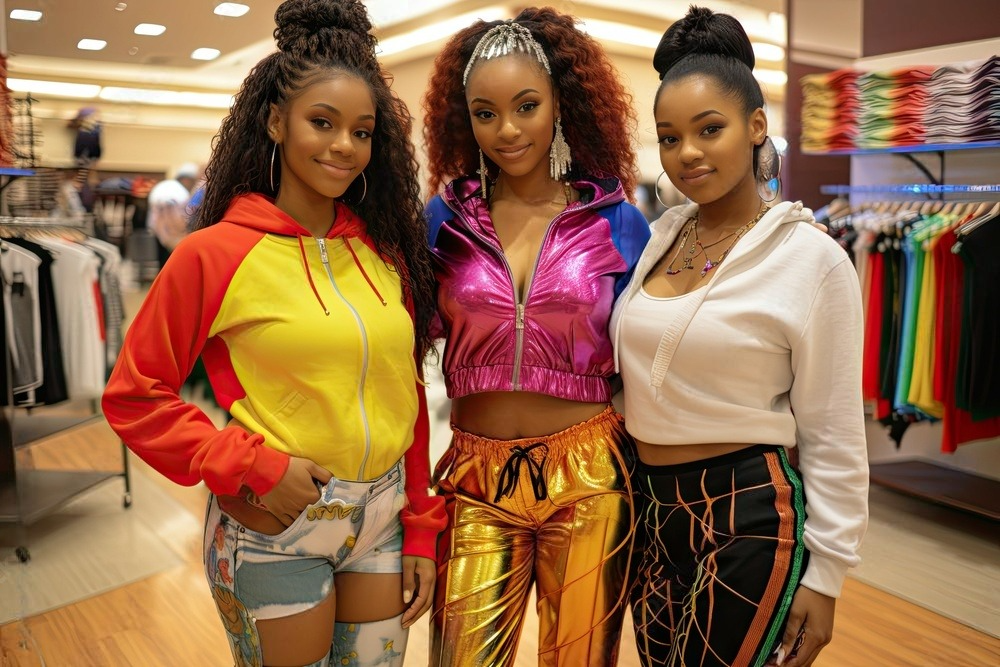
Embracing Vintage Revival: The Role of Y2K in Sustainable Fashion
Y2K fashion style, with its bold colors, innovative materials, and avant-garde designs, has captivated a new generation of fashion enthusiasts. However, its sustainability lies not only in its aesthetic appeal but also in its inherent ethos of repurposing and reimagining. Vintage Y2K pieces, sourced from thrift stores or online marketplaces, offer a sustainable alternative to fast fashion by extending the lifecycle of clothing and reducing waste.
Upcycling and Creative Expression
One of the hallmarks of Y2K fashion style is its DIY spirit and emphasis on individuality. Through upcycling techniques such as embellishment, customization, and patchwork, enthusiasts can breathe new life into old garments, transforming them into unique statement pieces. This creative approach not only reduces textile waste but also encourages a deeper connection with one’s wardrobe and personal style.
Collaborative Consumption and Community Building
The resurgence of Y2K fashion style has fostered a sense of community among like-minded individuals passionate about sustainable style. Online platforms and social media communities provide spaces for sharing styling tips, swapping clothing items, and collaborating on creative projects. By collectively redefining fashion norms and promoting conscious consumption, these communities contribute to a more sustainable and inclusive fashion ecosystem.
Ethical Production Practices: From Concept to Consumer
In addition to embracing vintage and upcycling, sustainable Y2K fashion style also entails a commitment to ethical production practices throughout the supply chain. Forward-thinking brands prioritize transparency, fair labor, and environmentally friendly materials, ensuring that each step of the production process aligns with ethical principles.
Transparency and Traceability
Consumers increasingly demand transparency regarding the origins of their clothing, from raw material sourcing to manufacturing processes. Ethical Y2K fashion style brands leverage technology and supply chain innovations to provide comprehensive information about their products’ journey, empowering consumers to make informed purchasing decisions based on value alignment.
Fair Labor and Social Responsibility
The production of Y2K-inspired garments should not come at the expense of human rights or labor rights. Ethical fashion brands prioritize fair wages, safe working conditions, and labor rights for garment workers, fostering dignity and empowerment within the industry. By supporting brands that uphold these standards, consumers can contribute to positive social impact and promote a more equitable fashion industry.
Environmental Stewardship: Minimizing Ecological Footprint
Central to sustainable Y2K fashion style is a commitment to minimizing the environmental impact of clothing production and consumption. From eco-friendly materials to circular business models, brands and consumers alike play a vital role in preserving the planet for future generations.
Eco-Friendly Materials and Innovation
Innovative materials such as organic cotton, recycled polyester, and plant-based fibers offer sustainable alternatives to conventional textiles, reducing the reliance on resource-intensive production methods. Furthermore, advancements in textile recycling and closed-loop manufacturing processes enable the regeneration of materials, mitigating waste and pollution associated with fashion production.
Circular Fashion Models: Closing the Loop
Circular fashion models, such as rental, resale, and repair, promote the longevity and circularity of clothing, minimizing the need for new resource extraction and garment production. By extending the lifecycle of Y2K-inspired garments through rental services, resale platforms, and repair initiatives, consumers can embrace sustainable fashion practices without compromising on style or creativity.
In conclusion, the resurgence of Y2K fashion style presents an opportunity to reimagine style through a sustainability lens, fostering creativity, community, and conscious consumption. By embracing vintage revival, ethical production practices, and environmental stewardship, a sustainable Y2K fashion style transcends fleeting trends, offering a timeless and responsible approach to dressing. As we navigate the intersection of fashion and sustainability, let us continue to celebrate the past, innovate for the future, and tread lightly on the planet we call home.
………………To Be Continued

